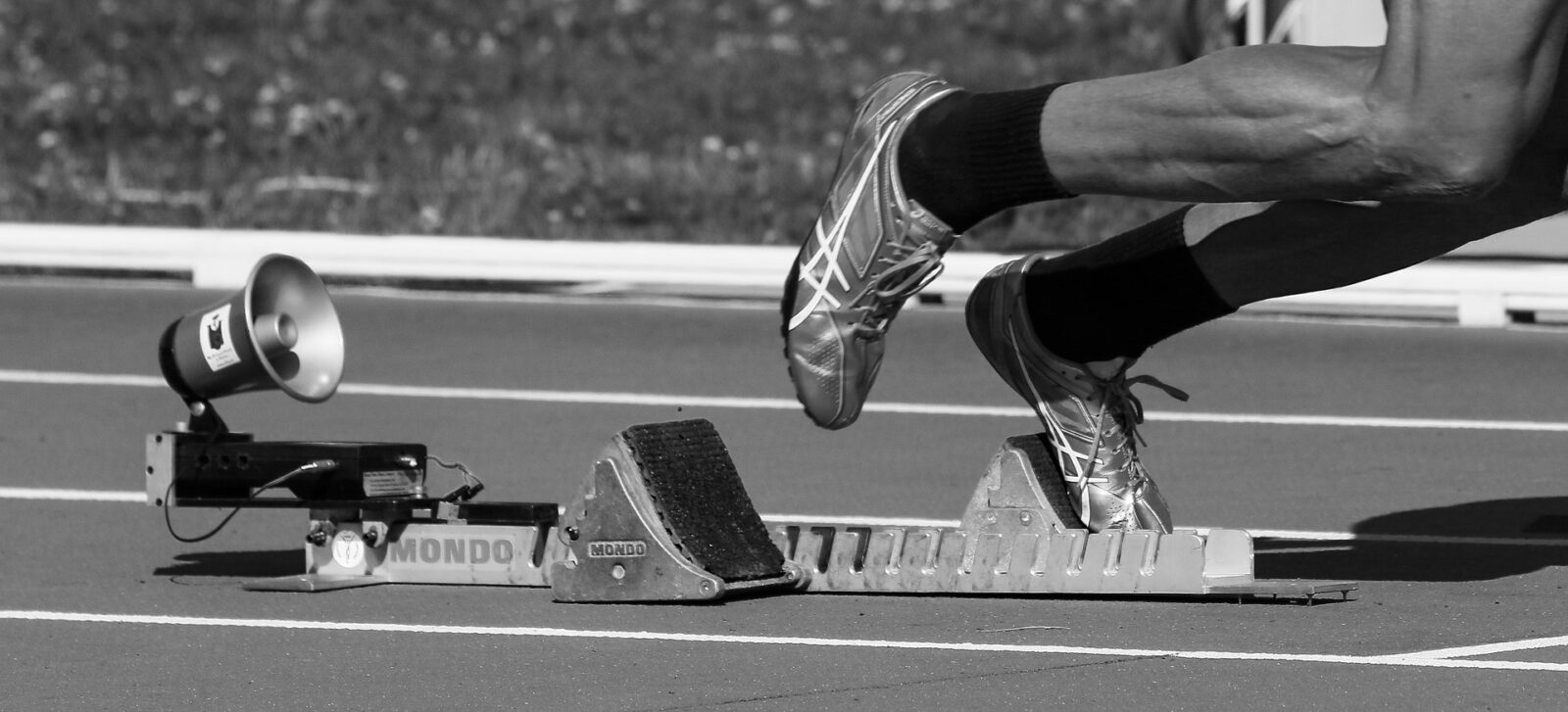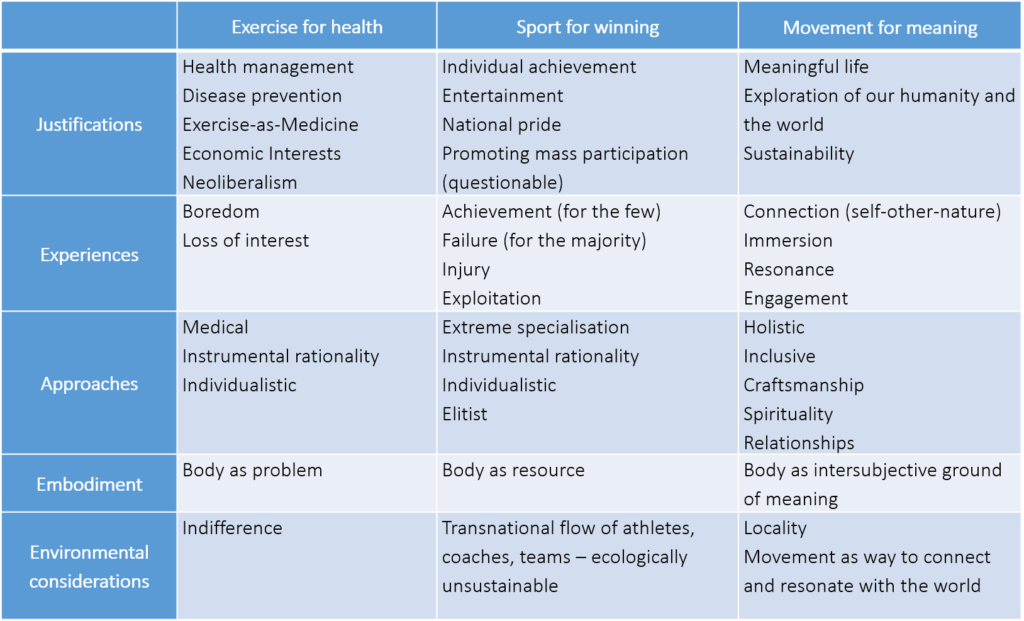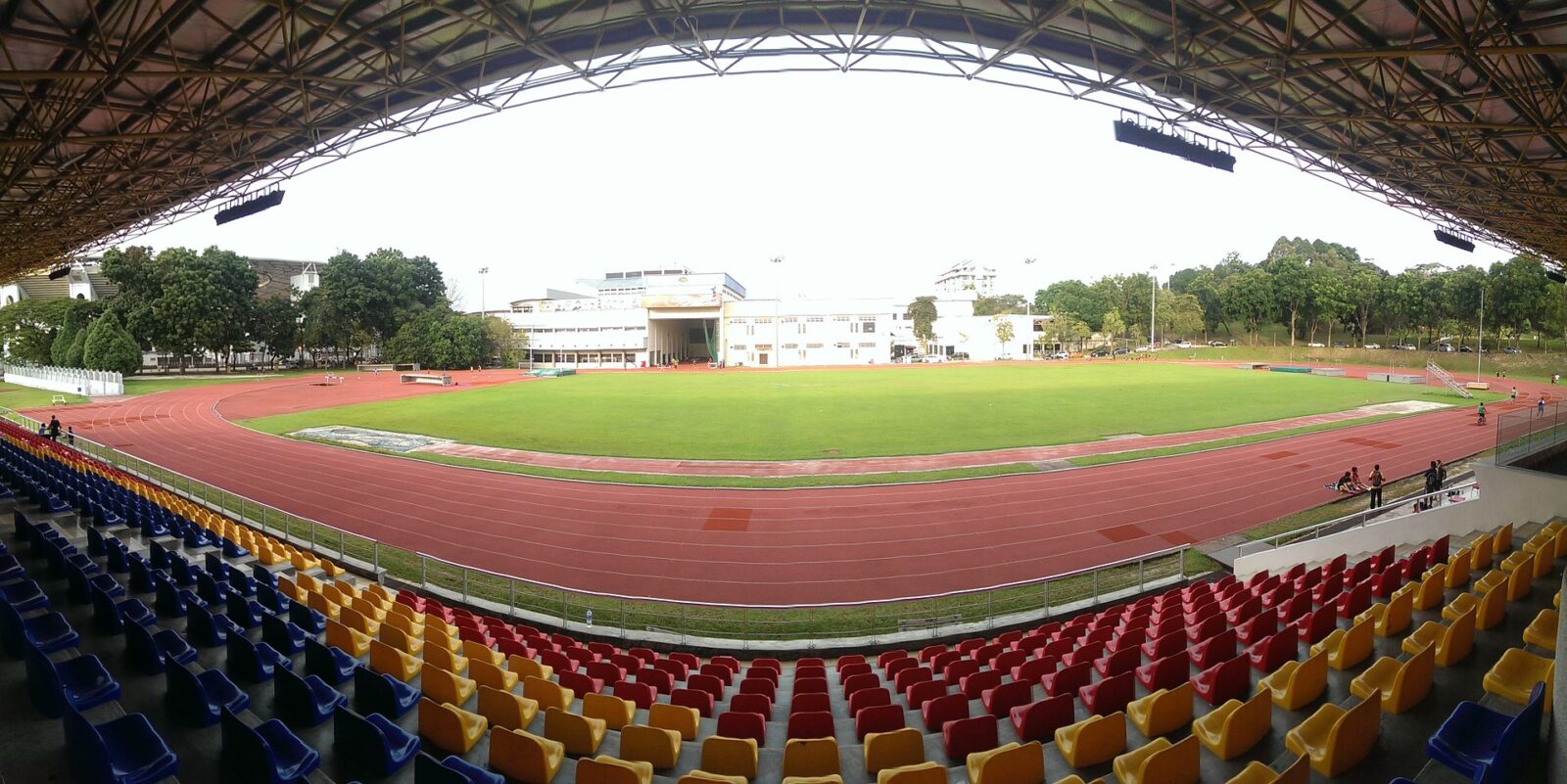Many philosophers have contended that movement culture practices hold the possibility to become existential explorations of our humanity and place in the world. However, in contemporary cultural life, movement cultures (in sport and exercise) are in danger of being reduced to two equally uninspiring ‘projects’: exercise-for-health and (elite) sport-for-winning.
‘Exercise-for-health’, informed by the rapid advances of health and medical sciences, conceives the human body as ‘a problem’ to be cured with an optimal dose of physical movement. Exercise is offered as a medicine to sustain our functionality and productivity while reducing the costs to health care systems.
Alternatively, the elite ‘sport-for-winning’ offers young people a pre-packaged dream of sporting success, a project of exploiting their bodily resources for personal (and national) glory. Given the totalisation processes of international elite sports, many talented athletes compromise their broader educational, psychological and social development in the pursuit of top performance – even if for the vast majority, a failure to reach their dreams is inevitable.

We can ask whether elite ‘sport-for-winning’ is sustainable on any level. Studies show the problems many athletes face on physical (e.g., permanent injuries), psychological (e.g., mental health) and existential levels (e.g., crisis of meaning when the elite career is over). The constant international travel of athletes, coaches and teams (at least before the pandemic) also makes elite sport problematic when thinking about environmental sustainability.
Even if these two types of movement culture discourses might be dominant in our time, there are also a lot of critical voices calling us to rethink our ways of moving and living our lives more broadly.
For example, in the opening section of the book Critical Realism and Spirituality, Morgan and Hartwig contended that ‘humans have proved themselves as an intelligent species that has been content to live in a systematically stupid way’, constructing ‘ways of living that are personally and collectively corrosive as well as environmentally destructive’.
At the moment, there is a lot of exciting scholarship coming out on ecologically sustainable sports. New movement cultures are emerging and being studied. And there are different ways of thinking about more mainstream sports, too, which can certainly be practiced without subscribing to exercise-for-health or sport-for-winning ideologies.
As an alternative to health– and winning-focused movement cultures, I am seeking to understand what movement cultures might look like if their basic motive was meaning.
Adopting this meaning-focused perspective, I am asking questions such as: How can movement give expression to our fundamental questions about existence? How can movement contribute to a life that is worth living? How can it connect us to the terrains and landscapes and awaken us to protect them? How can movement cultures sustain us as individuals (physically, psychologically, socially, and spiritually)? How can it build communities and help us protect the ecosystem?
This might sound idealistic, but we know from research that many people are rejecting the materialist, consumerist and self-centred lifestyles and looking for more sustainable alternatives.
For example, Joel Vos, an existential psychologist, philosopher and researcher, is currently writing about “Meaning-oriented” Economies (see reference). Following Vos, we can wonder what “Meaning-oriented” movement cultures might look like.
In the table below, I have added a preliminary sketch of how I view the differences between three movement cultures: exercise-for-health, sport-for-winning, and movement-for-meaning.

I know that this might sound a bit radical and, for example, not all elite athletes experience being exploited. However, there are some serious problems in cultures of sport that should be highlighted.
For example, a recent survey with Finnish elite athletes showed that 68% of the respondents (N=111) had suffered from mental health issues and half of them had considered ending their careers because of this. These are outrageous numbers.
We truly have to question our cultures of sport and look for more sustainable alternatives.
Literature:
https://yle.fi/uutiset/osasto/news/yle_survey_more_than_70_top_finnish_athletes_report_mental_health_disorders/11577893
Hartwig, M., & Morgan, J. (Eds.). (2013). Critical realism and spirituality. Routledge.
Vos, J. (2020). The Economics of Meaning in Life: From Capitalist Life Syndrome to Meaning-Oriented Economy. University Professors Press.

Noora, I love these ideas. They link to ideas I developed around a Culture of Care within PE. Looking for ways to connect with the people we work and learn alongside. Your ideas about landscapes, communities and sustainable living are wonderful. I continue to care with people to allow us all to value ourselves as capable, valuable and successful in the very essence of being uniquely human. Thank you. JP.
Sorry for the very late reply, Julie!. Your work on culture of care sounds very exciting and I look forward to learning more about it. Do you have something published to learn more about it?